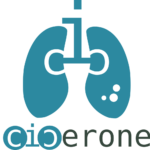The Project
Grant PID2021-126810OB-I00 funded by:

COPD (chronic obstructive pulmonary disease) is a progressive lung disease affecting millions of people worldwide, compromising their quality of life and presenting significant challenges for traditional healthcare.
Traditional approaches to patient monitoring often fall short of providing timely and comprehensive care. The lack of specificity of existing clinical decision support systems for predicting exacerbations that have been evaluated in recent clinical trials leads to frequent clinically unnecessary alerts, overuse of healthcare resources, inadequate management of COPD symptoms, and avoidable levels of stress and anxiety for patients and caregivers. As mentioned, the need for further research to identify symptoms and measures that enable early deterioration detection in patients with COPD is unquestionable. Evidence points to a comprehensive plan assisted by predictive technology that can meet this need.
Recognizing the pressing need for innovative solutions, our project CICERONE integrates cutting-edge sensor technology and artificial intelligence algorithms. By leveraging these tools, we aim to provide continuous and personalized monitoring to COPD patients, empowering them to manage their condition proactively from their homes.
Through this portal, we invite patients, healthcare professionals, and the general public to explore the advancements, discoveries, and outcomes of our project. Together, we are paving the way towards a future where telemedicine revolutionizes how we approach COPD care, improving the quality of life for those living with this chronic disease.
The research proposed in CICERONE, coordinated by the Research Group in Bioengineering, Automation, and Robotics of the University of Cadiz, will move the management of COPD from a generic to a personalized approach, through the research of physiological parameters for the prediction of COPD exacerbations, and the generation of personalized predictive models that offer a compromise between clinical understanding and the goodness of statistical fit.




